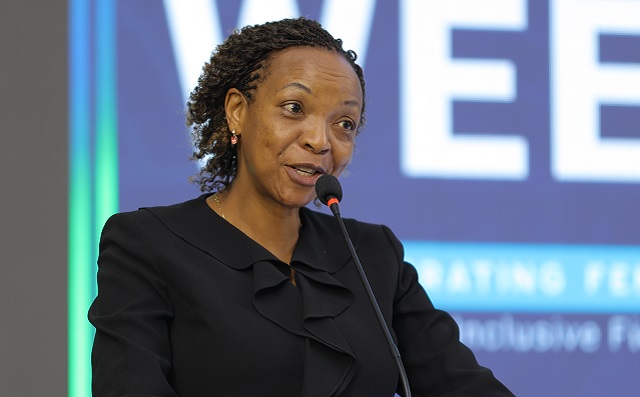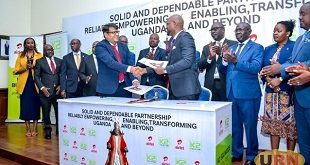
Uganda’s demographic outlook is promising, with women making up 51% of the population and including 18.2 million women under 35
Kampala, Uganda | THE INDEPENDENT | The Second Annual Women’s Economic Empowerment Forum (WEEF), held on November 6, 2024, at Mestil Hotel in Kampala, underscored a growing commitment to advancing gender equity in Uganda’s financial sector.
Organized by the Uganda Bankers’ Association (UBA) in partnership with USAID, Visa Uganda, and the National Social Security Fund (NSSF), this year’s forum embraced the theme, “Accelerating Female Leadership for Gender-Inclusive Financial Services,” highlighting the need to break down barriers and empower women in business and leadership.
Uganda’s demographic outlook is promising, with women making up 51% of the population and including 18.2 million women under 35, as shared by Sarah Arapta, Chief Executive Officer of Citibank Uganda.
Despite this representation, Arapta noted that women face significant challenges in accessing financial services, which are further compounded by limited education, digital literacy, and socio-cultural restrictions.
Ms. Olive Birungi Lumonya, Deputy Director General of the Uganda Civil Aviation Authority and a forum panelist, stressed the need to support female-led enterprises, especially in areas of financial literacy and access to loans.
Women participate less in business
While women constitute 52% of the banking workforce, Arapta highlighted, only 24% occupy CEO roles, with just 31% in executive positions. In lending, women receive only 24.4% of industry loans, hindering the growth of their businesses and reducing the potential for job creation and economic impact.
This disparity underscores the importance of inclusive policies and financial products designed specifically for women. “Ensuring equal access to financial services isn’t just about fairness,” Arapta explained. “It’s about fostering resilient businesses that drive Uganda’s economic growth.”
Salma Ingabire, Visa’s Country Director for East Africa, highlighted Visa’s support for female entrepreneurs through initiatives like the RevUp Women program, which provides funding, mentorship, and resources for early-stage, women-led startups in Africa.
She also noted Visa’s She’s Next initiative, which offers funding and training to women-owned businesses. “Diverse teams, which bring both male and female perspectives, fuel innovation and are essential for tackling the challenges in our rapidly evolving industry,” Ingabire emphasized. “Through these initiatives, we are addressing the unique challenges women face in accessing capital and stepping into leadership roles in finance.”
Daniele Nyirandutiye, Mission Director at USAID Uganda, pointed out that the forum’s theme aligns with the U.S. government’s goals of enhancing women’s financial access. She shared USAID’s findings, which reveal that women often struggle with loan processes due to limited knowledge of banking procedures and inadequate support in preparing loan applications. To address these barriers, USAID has been collaborating with local financial institutions to offer gender-sensitive financial services. “Partnerships with financial institutions are essential for driving long-lasting change,” Nyirandutiye noted, underscoring USAID’s partnership with UBA to improve sustainable financial access for women entrepreneurs.
A collective solution
A central takeaway from the forum was the importance of cross-sector collaboration in creating a gender-inclusive financial environment. Participants agreed that while the banking sector has initiated promising efforts to empower women financially, these efforts require widespread support to achieve meaningful impact. Leaders from UBA and Visa emphasized that fostering strategic partnerships is crucial for achieving equality in access to capital, training, and financial literacy.
By joining forces, Uganda’s financial industry, alongside local and international partners, is building a foundation for women’s economic empowerment that promises to drive positive change not only for women but for the Ugandan economy at large.
National statistics showing a higher population of women compared to men emphasize the need for targeted support to enable women’s full participation in the country’s economic growth.
 The Independent Uganda: You get the Truth we Pay the Price
The Independent Uganda: You get the Truth we Pay the Price


